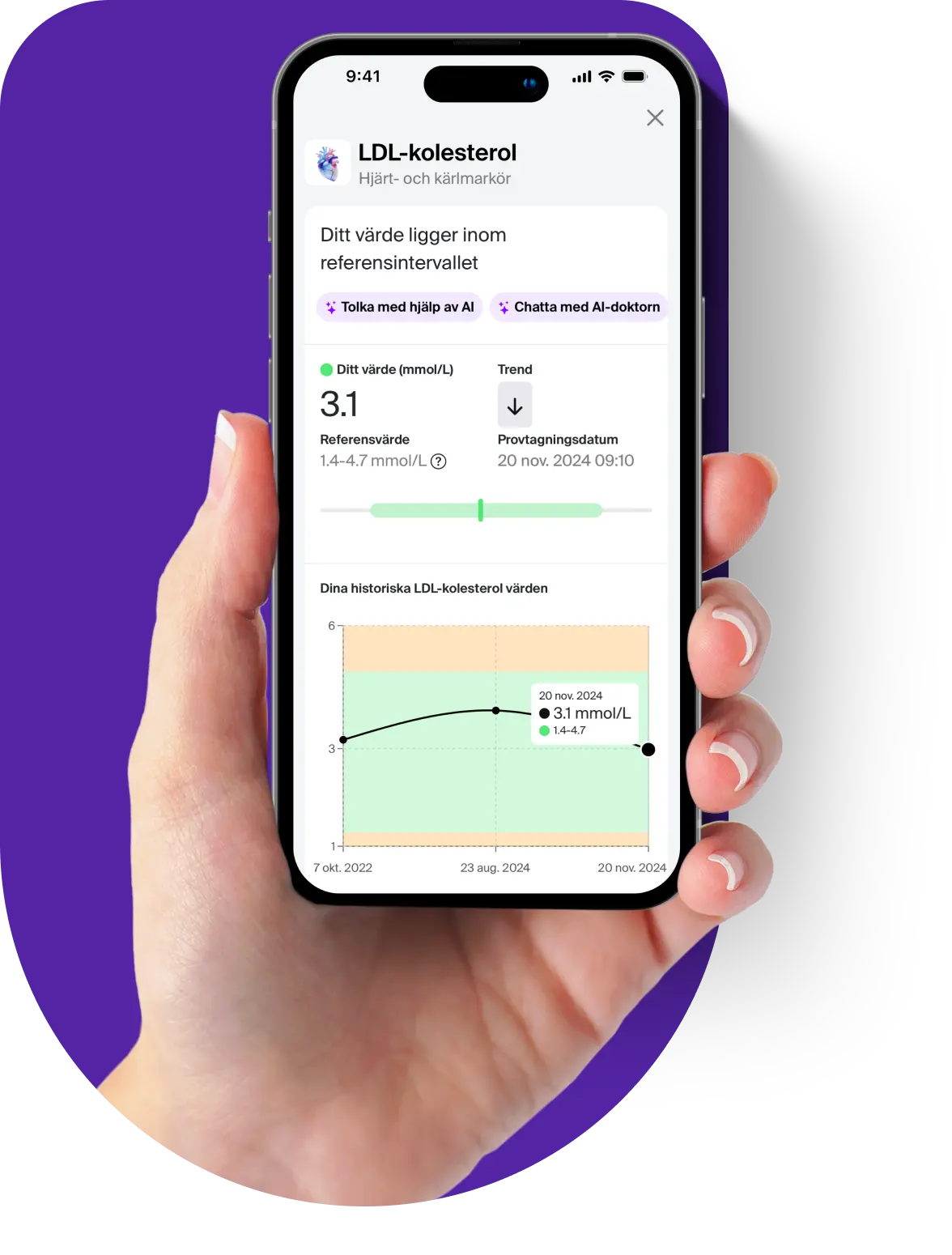Health test for the biomarker Luteinizing hormone (LH) that can help you understand your reproductive health and any underlying diseases.
The LH test can be used in fertility investigations and diagnosis of possible pituitary diseases that affect LH production, diseases that affect the function of your ovaries/testicles, irregular or absent menstruation, or to diagnose the causes of delayed or precocious puberty in children.
Men also produce LH, which helps bind to leydig cells in the scrotum that contribute to the production of testosterone. Our LH test gives you an indication of your LH value and its relationship to normal reference values for women and men. Take control of your reproductive health.
When is an LH test relevant?
For women, luteinizing hormone is an important hormone for women's reproductive health, affecting ovulation and the menstrual cycle and can indicate hormonal imbalance. The analysis can provide valuable information in fertility investigations, suspected menopause or in hormonal diseases and conditions.
- Fertility Investigation and Ovulation Tracking LH rises prior to ovulation, making the test useful for identifying fertile days and assessing hormonal balance in cases of fertility problems.
- Irregular or absent menstruation Abnormal LH levels may indicate PCOS, premature ovarian failure, or other hormonal disorders.
- Diagnosis of menopause Elevated LH levels may indicate that menopause is approaching or has already occurred.
- Evaluation of hormonal disorders can help identify diseases that affect the ovaries or pituitary gland.
- Follow-up of hormone therapy is used during IVF or hormonal fertility treatments to monitor the body's response.
For men, LH is primarily crucial for testosterone production and affects sperm production. The test may be relevant for fertility investigations, suspected testosterone deficiency and hormonal diseases.
- Fertility investigation LH controls testosterone production, which affects sperm quality.
- Suspected testosterone deficiency lower concentrations of LH may indicate problems in the pituitary gland, while high levels may indicate testicular insufficiency.
- Follow-up of hormone therapy analysis is also performed to monitor hormonal feedback during testosterone therapy.





































